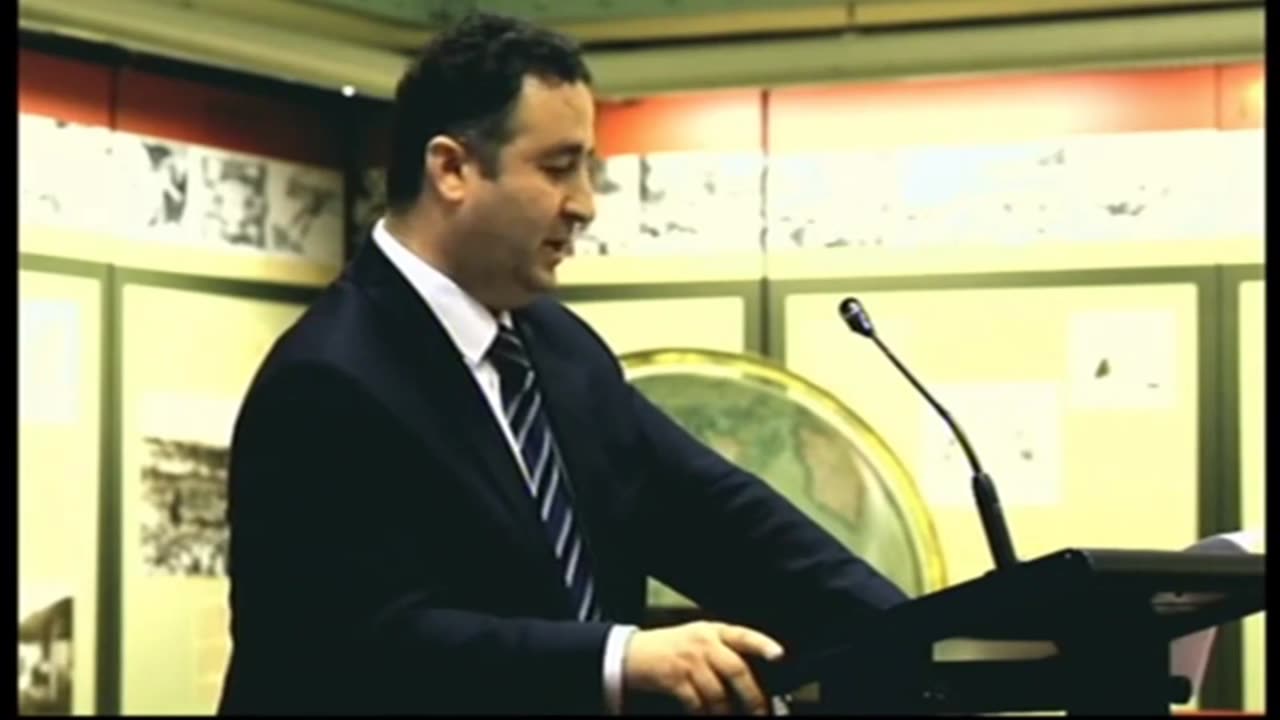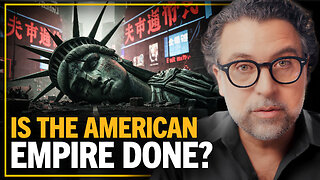Premium Only Content

Shaoqett Moselmane - The Arab Spring and its Consequences
SUMMARY:
------------------------------
I’m excited to share this compelling talk by the Honourable Shaoquett Moselmane, a Lebanese‑Australian member of the NSW Legislative Council, about the Arab Spring and what followed. Drawing on his own migrant background and long community work, Shaoquett traces the spark in Tunisia — the self-immolation of Mohamed Bouazizi — and explains why the uprisings produced very different outcomes across the region. He lays out three broad pathways: rapid regime collapse, leadership change without systemic reform, and descent into violent civil war (as in Libya, Syria and Yemen). Shaoquett also examines how Gulf wealth, state repression and international reactions shaped responses, and why it’s still too early to claim a single narrative. This is a nuanced, human-centred briefing that connects Middle East politics to everyday hopes and hardships, and offers useful context for anyone interested in democracy, conflict and migration. Highly recommended viewing for students, community leaders and anyone wanting a clear, grounded Australian perspective on a complex global event.
RUMBLE DESCRIPTION:
-----------------------------------
Don’t miss this thoughtful lecture from the Honourable Shaoquett Moselmane — Lebanese‑Australian, lawyer, academic and long‑time NSW Legislative Council member — as he walks us through the Arab Spring and its wide‑ranging consequences. Shaoquett brings a rare combination of lived experience (born in Beirut, migrated as a child) and public policy insight to explain how a single act in Tunisia — the self‑immolation of Mohamed Bouazizi in December 2010 — ignited protests across the Arab world.
In plain, direct language he outlines three broad outcomes of the uprisings: countries where regimes were quickly overthrown, places where leadership changed but the system stayed intact, and states that plunged into civil war (notably Libya, Syria and Yemen). He also discusses how oil wealth, regional power dynamics, international intervention and domestic institutions influenced each country’s path. Shaoquett is careful to stress complexity: it’s still too early to draw definitive conclusions about long‑term democratic transition across the region.
This talk is ideal for anyone interested in Middle East politics, migration perspectives, Australian foreign policy, or grassroots community work. If you value balanced analysis delivered with warmth and clarity, you’ll find plenty to think about here.
If you enjoyed the video, please like, share and follow for more talks and discussions. Leave a comment with your thoughts or questions — I’ll highlight interesting replies and we’ll keep the conversation going.
⚠️ CONTENT DISCLAIMER ⚠️
The views, opinions, and statements expressed in this video are those of the individual speaker(s) and audience members. They do not necessarily reflect the views, opinions, or positions of Western Heritage Australia or its affiliates.
This content is presented for educational and informational purposes as well as to facilitate public discourse on important social and political issues. We provide a platform for diverse Australian voices to be heard, to assist the public in forming their own informed opinions.
Western Heritage Australia does not endorse, verify, or take responsibility for the accuracy of statements made by speakers. All claims, statistics, and opinions remain the responsibility of the original speaker. Viewers are encouraged to conduct their own research and consult multiple sources when forming opinions on these topics.
This video may contain strong political opinions, controversial viewpoints, strong language, or mature themes. Viewer discretion is advised.
-
 LIVE
LIVE
Kim Iversen
1 hour agoCBS Boss Colluded With Israel to SPY on Americans | Trump Keeps Bombing Fisheman
8,312 watching -
 LIVE
LIVE
TheCrucible
1 hour agoThe Extravaganza! EP: 58 with Guest Co-Host: Rob Noerr (10/22/25)
5,050 watching -
 LIVE
LIVE
Tundra Tactical
1 hour agoProfessional Gun Nerd Plays Battlefield 6
300 watching -
 LIVE
LIVE
Dad Saves America
5 hours agoWill China Overtake America? Balaji Srinivasan VS Steve Bannon on the Trade War
139 watching -
 LIVE
LIVE
Red Pill News
2 hours ago100’s of Billions In Gov Fraud Exposed on Red Pill News Live
3,231 watching -
 1:05:40
1:05:40
vivafrei
3 hours agoWicked Witches of the Psaki! The Party of Criminals and Liars! LIVE FROM SWITZERLAND!
88K39 -
 34:54
34:54
Michael Franzese
2 hours agoFormer Capo REVEALS: What My Life Was Really Like in the Mob
26.4K9 -
 LIVE
LIVE
LFA TV
19 hours agoLIVE & BREAKING NEWS! | WEDNESDAY 10/22/25
1,198 watching -
 LIVE
LIVE
freecastle
6 hours agoTAKE UP YOUR CROSS- Now may the Lord of peace himself give you peace AT ALL TIMES in every way!
124 watching -
 1:32:15
1:32:15
Redacted News
2 hours agoWW3 Alert! "No more talk!" Putin is ready to DESTROY what's left of Ukraine | Redacted News
90K79